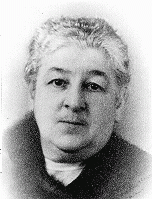<< Previous | Displaying results 251-275 of 6705 for "" | Next >>
-
Israel Yitzak Kisielnicki
ID CardThe youngest of three children, Israel Yitzak was born to Jewish parents living 35 miles east of Warsaw in the small, predominantly Jewish town of Kaluszyn. Israel's mother was a housewife, and his father was a merchant who often traveled on business, by horse and wagon, to Warsaw. Israel attended public school and also received religious instruction. 1933-39: When Germany invaded Poland several days ago, many kids Israel's age, afraid of what would happen if the Germans occupied Poland, fled to the USSR,…
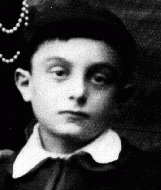
-
Rojske Kisielnicki Sadowsky
ID CardThe second of three children, Rojske was born to Jewish parents living 35 miles east of Warsaw in the small predominantly Jewish town of Kaluszyn. Rojske's mother was a housewife and her father was a merchant who often traveled, by horse and wagon, to Warsaw on business. When Rojske was in her twenties, she married Welwel Sadowsky, a fruit dealer. 1933-39: After war broke out last week, German forces fought Polish troops in a battle right here in Kaluszyn. Half the town has been flattened by shelling, and…
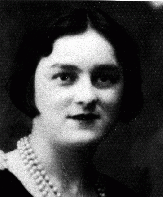
-
Betje Jakobs
ID CardBetje and her sister Saartje were born to Jewish parents in the town of Zwolle in the Netherlands' north central province of Overijssel. Betje was known affectionately as "Bep" to her friends. The Jakobs family owned a successful sporting goods store. 1933-39: As a young girl, Betje enjoyed playing the piano, knitting and tennis. At age 16, while still in secondary school, she began to date Maurits Wijnberg, a boy two years her senior, whose family owned Zwolle's Hotel Wijnberg. 1940-42: The Germans…
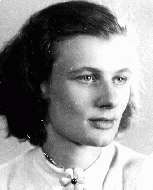
-
Mikulas Diamant
ID CardMikulas and his German-speaking Jewish family lived in the town of Hlohovec. His family owned a large farm and his father was a rancher. In 1932, due to declining economic conditions, Mikulas's father began to sell all of his property. Then the family moved to the city of Bratislava, where they had many relatives. 1933-39: Mikulas's father worked with his uncle in the wholesale paper business. Mikulas worked part-time in a workshop as an electrician and he went to high school. In 1938 his family began to…
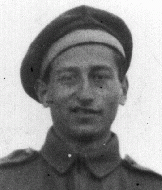
-
Maria Schimek Dicker
ID CardMaria's Jewish family lived in a Slovakian manufacturing town. When her father's match factory failed, the family of seven moved to Budapest. In her early twenties, Maria opened a flower shop, but she gave it up when she married and moved to Ujpest, outside Budapest. Maria then stayed at home to raise her five children. Her husband owned a large furniture store, and she often gave him business advice. 1933-39: Maria loves having all her grown children gathered around her at the dinner table, enjoying her…
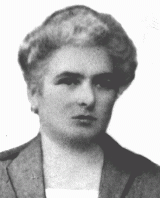
-
Esther Morgensztern
ID CardThe fourth of five children, Esther was born to Jewish parents living 35 miles east of Warsaw in the small predominantly Jewish town of Kaluszyn. Esther's mother and grandmother ran a newspaper kiosk in the town, and her father worked as a clerk at the town hall. 1933-39: Next year would have been Esther's last year at school, but she won't be able to graduate. War has broken out between Poland and Germany, so the schools have closed. A big battle took place here in Kaluszyn. The town was heavily shelled…
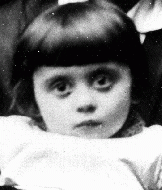
-
Meyer (Max) Rodriguez Garcia
ID CardMax was born to a Jewish family in Amsterdam. He lived in a working-class district occupied by many diamond polishers, of which his father was one. In the 1920s and 30s Amsterdam was a cosmopolitan city with a diverse population. Though his father hoped Max would follow him in the diamond trade, Max dreamed of becoming an architect. 1933-39: Max's happiest years were with close friends in school. His father encouraged him to learn by bringing home newspapers to help his English. After 1933 German Jews…
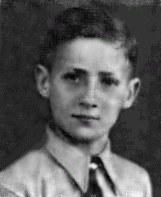
-
Bernard Rechnitz
ID CardBernard was raised by Jewish parents in the small southwestern Polish town of Bedzin. In 1930 Bernard moved with his wife, Ruchla, to the nearby city of Katowice, where he owned a wholesale leather business. The couple lived with their two children, Moses and Genia, in a three-bedroom, upper-floor apartment on Jordana Street. 1933-39: In 1939 Bernard, who was a Zionist, decided the family should emigrate to Palestine [the Yishuv]. His son, Moses, had been the target of antisemitic taunts at school.…
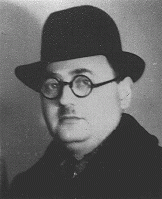
-
Gertrud Gruenbaum
ID CardBorn to a Jewish father and a Catholic mother, Gertrud grew up in Vienna. Trude, as she was affectionately called, attended a public secondary school, where half of her classmates were Jewish. At age 7 she rejected music lessons for classes in dancing and acting. Trude wanted to be like Greta Garbo. She launched an acting career at age 18, assuming the stage name Trude Hermann. 1933-39: Because Gertrud was Jewish she couldn't get acting jobs in Austria and nearby Sudetenland. In 1937 her agent found work…
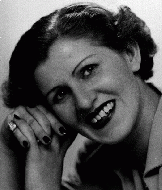
-
Pinchas Galperin
ID CardPinchas was one of 16 children born to a Jewish family. Only nine of the Galperin children lived to adulthood. Pinchas' father worked as a typesetter for a Jewish newspaper and his mother ran a small grocery store. After World War I, Pinchas married Sara Bernstein and the couple moved to Siauliai, Lithuania, where they raised three children. 1933-39: Pinchas and Sara owned and ran a dairy store where they sold milk, butter and cheese that they bought from local farmers. Every morning they would rise early…
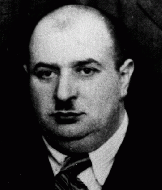
-
Judith Gabriel Dichter
ID CardJudith, nicknamed Julie, was one of five children born to religious Hungarian-Jewish parents in the Burgenland, the eastern province of Austria that was part of Hungary until 1921. She married Tobias Dichter, a traveling salesman from Vienna who had sold merchandise to her father. The Dichters moved to an apartment in Vienna's Jewish Leopoldstadt district, where they raised two children. 1933-39: The Germans have annexed Austria. One week after the annexation, Germans came to Julie's apartment to take her…
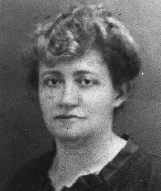
-
Aron Tabrys
ID CardAron was the second of six children born to Jewish parents in Vilna, a city known as a center of Jewish cultural life. He was called Arke by his friends and family. Aron's father supported his large family on the meager income of a chimney sweep. 1933-39: As a child Aron attended a Jewish day school, and then went on to attend a public secondary school. When he was 14 his father had an accident which rendered him blind, and Aron had to start working full-time to support the family. Aron belonged to an…
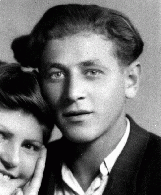
-
Jovanka Jovicic Babunovic
ID CardJovanka was one of six children born to Serbian Orthodox parents in a small town in the Bosnian part of Yugoslavia. Her parents were prominent Serbian nationalists. After Jovanka completed middle school in Foca, she moved with her parents in 1912 to the multi-ethnic city of Sarajevo. There she met and married Marko Babunovic in 1916. The couple raised three children. 1933-39: Jovanka was an active member of the Serbian Orthodox Church. Her husband was a prosperous businessman, and she was active in…
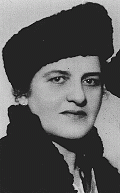
-
Mirjana Babunovic Dimitrijevic
ID CardMirjana was the second of three children born to well-to-do Serbian parents in the capital of Bosnia, in central Yugoslavia. Her father was a successful businessman and prominent Serbian nationalist. Like her parents, Mirjana was baptized in the Serbian Orthodox faith. Mirjana attended elementary school in the multi-ethnic city of Sarajevo. 1933-39: While in secondary school, Mirjana studied foreign languages and toured western Europe. In 1938 she graduated. That fall she enrolled as a student of English…
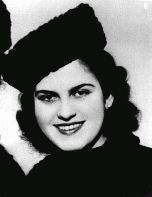
-
Mara Jovicic Popovic
ID CardMara was one of six children born to Serbian parents. The family lived in the small town of Foca in the region of Bosnia. Like her parents, Mara was baptized in the Serbian Orthodox faith. She grew up in Foca and in the Bosnian capital of Sarajevo, where she completed secondary school. In 1930 she married Rajko Popovic, a circuit court judge. The couple had no children. 1933-39: In 1934 Rajko completed a judicial tour of duty in Foca, and the couple moved to Sarajevo, the capital of Bosnia. Mara and Rajko…
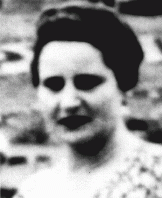
-
Julius (Julo) Levin
ID CardJulo was born to a Jewish family in the city of Stettin in northeastern Germany. From an early age Julo showed an interest in art; at 6 he had collected more than 3,000 pictures. His family hoped he would become a businessman, but his interest in painting absorbed all his energy. In 1926 he graduated from art school and by 1931 he secured his first commission in Duesseldorf. 1933-39: Until the Nazis came to power in 1933, Julo was a highly regarded artist. The Nazis' strict interpretation of art, however,…
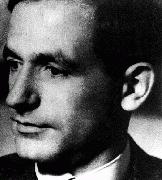
-
Gertrud Teppich
ID CardGertrud, born Gertrud Herz, was one of three children born to a Jewish family in the German capital of Berlin. In her early twenties, Gertrud married Richard Teppich and the couple had two daughters. Richard owned and operated a dry-cleaning business. 1933-39: When Gertrud's husband died in 1931 she stayed on in their Berlin apartment. In 1938, five years after the Nazis came to power, Gertrud's oldest daughter, Ilse, and her family fled to Amsterdam. A year later her youngest daughter was able to leave…
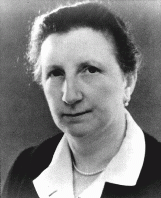
-
Norbert Yasharoff
ID CardNorbert was born to a Jewish family in the Bulgarian capital of Sofia. His father, a prominent lawyer, was also active in the Jewish community, heading relief efforts for the city's Jewish orphans. Sofia was home to approximately half of Bulgaria's estimated 50,000 Jews during the mid-1930s. 1933-39: On September 1, 1939, while on a family vacation the Yasharoffs heard over the radio that war [World War II] had begun. Norbert's parents exchanged worried glances; what would happen to them now? Bulgaria had…
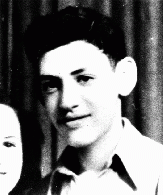
-
Leon Franko
ID CardLeon was born to a large, Ladino-speaking, Sephardic-Jewish family. The Frankos lived in a large house in ethnically diverse Bitola, a town located in the southern part of Yugoslav Macedonia, near the Greek border. Leon's father, Yiosef, was a successful fabric merchant. The Frankos' children attended Yugoslav public schools where they learned to speak Serbian. 1933-39: Upon completing his schooling, Leon became a fabric merchant in Bitola. A handsome man from a well-to-do family, Leon was popular. His…
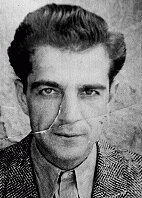
-
Eva Rapaport
ID CardEva was the only child born to nonreligious Jewish parents. Her father was a journalist. Eva enjoyed spending time with her cousin Susie, who was two years older. Eva also took special vacations with her mother. Sometimes they went skiing in the Austrian alps, and on other occasions they stayed at her uncle's cabin along the Danube River. 1933-39: When the Germans annexed Austria in 1938, life changed. Eva's father was harassed by the Gestapo for writing articles against the Germans. Her good friends…
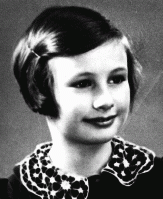
-
Ida Edelstein
ID CardIda, born Ida Kohn, was the oldest of four children born to a Jewish family in the village of Hostoun, near Prague. Her father owned a grocery store in the village, and also recorded the birth, death and marriage certificates in the Jewish community. In 1912 Ida married Josef Edelstein and they moved to Vienna. By 1920 the couple had a son, Wilhelm, and a daughter, Alice. 1933-39: In March 1938 the Germans annexed Austria. In the next few weeks, Ida, along with other Jews, was forced to scrub sidewalks.…
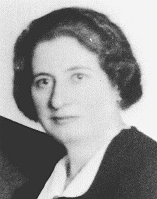
-
Alice Edelstein-Friedmann
ID CardAlice, born Alice Edelstein, was the youngest of two children raised in a Jewish family in the Bohemian village of Hostoun, near Prague. Shortly after Alice was born, her father moved the family to Vienna. There, Alice's father owned a wholesale shoe business. As a child, Alice attended public school and also received a religious education. 1933-39: After graduating from business school, Alice had a hard time finding a job because of the economic depression in Austria. In 1936 her father let her work in…
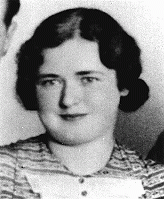
-
Rosa Israel Waldhorn
ID CardRosa was one of 14 children born to religious Jewish parents in the village of Yasinya at a time when it was known as Korosmezo and was part of Hungary. During World War I, she married Michael von Hoppen Waldhorn, an officer in the Austro-Hungarian army who was based near Yasinya. During the 1920s they moved to Paris, where they raised three children. 1933-39: The Waldhorn family's life in Paris was very different from their life in Hungary and Czechoslovakia. Rosa's husband made a good living, and he…
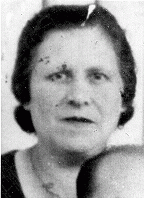
-
Israel Cendorf
ID CardIsrael was born into a religious Hasidic family who hoped he would become a rabbi. But Israel rebelled and apprenticed himself to a printer when he was 16. He read constantly, deepening his sympathy with the workers' struggle, and he soon began to write his own revolutionary songs. His first book of poems, The Red Agenda, was warmly received. 1933-39: In 1933, the year Hitler became chancellor of Germany, Israel moved to Paris. But the city was wracked by unemployment, and Jewish immigrants were in…
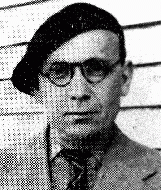
-
Rosalia Wourgaft Schatz
ID CardRosalia was raised by Jewish parents in the small, predominantly Jewish industrial city of Tulchin in southwestern Ukraine. She married Aaron Schatz, and together they raised four children in the city of Odessa. In 1919, when her family was grown, Rosalia and her daughter Ludmilla immigrated via Romania to France after Aaron was killed during the Russian civil war. 1933-39: Rosalia settled in Bagneux, a suburb of Paris. She spoke only Russian and Yiddish and found Paris to be a different world from the…
